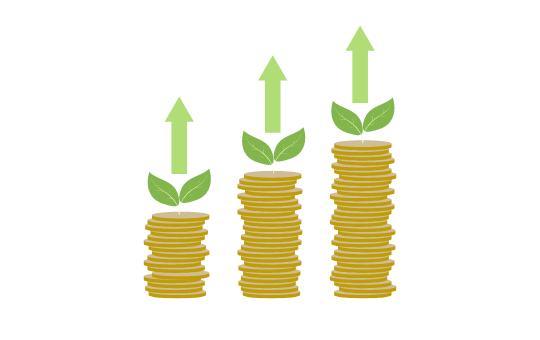Can Your Business Afford to Ignore Sustainability?
Can Your Business Afford to Ignore Sustainability?
There’s no denying the harsh truth: climate change is not a far-off threat anymore—it’s already affecting our businesses. Recent surveys show that a staggering 97%* of companies have already felt the negative effects of changing climate, with 63%* worried about its potential future harm.
Despite this, C-suite executives still have a hard time incorporating sustainability into our company culture and strategy, making it hard to achieve truly meaningful change. It’s not uncommon to find companies making lofty promises about their sustainability efforts, but failing to live up to them.
I think much of this disconnect stems from common misconceptions, such as the idea that sustainability is optional or too costly. Some even believe that sustainability is a passing trend, a phase you can simply wait out.
Personally, I think that taking a passive or do-nothing approach to sustainability in this rapidly changing landscape is a gambit—one that could lead to severe repercussions (read: regulatory interventions, bans, limitations) and major losses for any business.
So instead of questioning if we can afford to be sustainable, I believe organisations should be asking if we can afford the consequences of not being sustainable. Here’s why I see sustainability as a strategic necessity for a company’s sustained success today and in the future.
Let’s dive in.

Sustainability Myths Holding Your Businesses Back
Before we talk more about what sustainability in business is, let’s first clarify what it is not.
Despite its many well-documented benefits, the misconceptions around sustainability continue to make businesses reluctant to fully adopt sustainable practices. Time to debunk the most common myths about the topic:
Myth 1: Sustainability is a Pricy Burden
Is sustainability truly too costly for businesses? Perhaps from a short-term perspective—the initial investments in sustainability are hardly insignificant. However, organisations have demonstrated that by reducing waste and optimising resources, they can streamline operations, boost profitability, and, most importantly, reduce costs in the long run. Companies that incorporate ESG priorities into their growth strategies are twice as likely to get a 10%* revenue boost than those that don’t bother.
Besides, putting money into sustainability makes your brand look good and keeps customers coming back, which means more revenue over time (I talk more about this later).
Myth 2: Sustainability is Too Complex
To be honest, integrating sustainability into existing business practices can be tough. But despite the challenges, we can rely on a wealth of tools, resources, and best practices today to help make the process smoother. And the best way to get started? Perform a comprehensive sustainability assessment to pinpoint areas that need improvement, and establish goals and objectives specific to your organisation. With this, you can then lay the groundwork for a sustainability plan and come up with specific initiatives and practical actions to pursue.
Myth 3: Sustainability is Only About Environmentalism
Sustainability may come with a sense of moral responsibility. But it isn’t just about saving the planet—it’s about saving money too. A majority of organisations (63%)* believe that their sustainability practices are directly linked to driving sales growth and increasing brand revenues. By aligning sustainability with your organisation’s core business objectives and values, you help pave the way for new growth opportunities and distinctive positioning in the market.
Myth 4: Sustainability Doesn’t Apply to Our Business
Regardless of sector or industry, sustainability is a universal issue that affects all businesses. Whether you’re in retail, technology, or any other sector, incorporating sustainability into your business strategy and operations can lead to innovative solutions, improved efficiency, and a stronger competitive position. By integrating sustainability practices into your business, you help future-proof your operations, navigate risks, and unlock untapped opportunities for expansion.
Read more: Are You Building Sustainability Strategies or Are You Sustainable?
The Business Case for Sustainability
It is important for organisational leaders to make decisions that not only generate profits but also safeguard the long-term success of their company. Which is why I believe that the first and most important reason for any business to implement sustainable practices is simple: managing risks.
By ignoring sustainability, you expose your organisation to regulatory scrutiny and legal interventions, both of which can lead to reputational damage and hefty fines. For context, around 50,000 companies will have to comply with mandatory sustainability reporting this year. And regardless of the sector, a significant portion of a company’s profits, up to 30-60%*, can be at stake.
Not only that, but recent research shows that a staggering 75%* of business leaders have already increased their investments in sustainability in the past year. By not being included in this group, your organisation not only risks falling behind but also potentially suffering from negative economic consequences.

But beyond mitigating risk, sustainability also offers businesses a whole new range of opportunities, including financial gains, operational improvements, and a competitive edge. So, let’s dig a little deeper. Based on what we know from research, surveys, and success stories, it’s clear that a solid sustainability plan can directly improve a company’s profitability in a few important and interrelated ways.
- Elevating customer preference, brand value and sales
The demand for sustainable brands and products has never been higher, which is why 77%* of companies have seen a boost in customer loyalty through their sustainability efforts. It’s also worth noting that 66% of consumers across the globe are willing to dig deeper into their pockets to purchase sustainable products, emphasising the importance of sustainability in their purchasing decisions.
- Attracting talent, driving employee retention and productivity:
A sustainability boost in your brand value has positive effects on your recruitment, hiring, and employee management efforts, too. A significant majority, around 70%*, of the workforce is interested in working for companies that prioritise environmental sustainability. And if a business has a strong sustainability record, over half* of its employees express a greater inclination to stay in the company.
- Improving efficiency and cutting costs:
By investing in sustainable resources and practices, your business can also avoid being trapped by outdated infrastructure and unsustainable investments. Having a strong ESG proposition today means that you are aligning your business with resources that hold greater promise and are future-proofed. What does all of this add up to? Reduced operating costs, lower utility bills, and long-term savings on energy expenses.
Read more: Why Employees Should Be Involved in a Company’s Sustainability Work
How You Can Embrace Sustainable Innovation
Like all major industrial shifts before it, sustainability is not about a single decision, but rather a collection of choices leading in a single direction. And while every choice and every step in that direction matter, some choices carry more significance than others.
So, what choices should you focus on? Here’s my two cents:
Set Sustainability Goals
Like I said before, the best way to get started is by setting clear and measurable sustainability goals for your organisation. Are you looking to reduce carbon emissions, minimise waste, or promote renewable energy use? Setting clear, ambitious yet achievable targets will guide your efforts and help track progress over time.
Leverage Technology
Embrace technology as a powerful tool for driving sustainable innovation. From energy-efficient equipment to data analytics for resource optimisation, technology is your best tool to help identify opportunities for efficiency improvements and cost savings.
Implement Employee Engagement Initiatives
Your employees are your greatest asset in the journey towards sustainability. Get them on board by providing training, raising awareness, and encouraging participation in sustainability initiatives. Foster a culture of environmental stewardship and responsibility. Encourage ideas for reducing waste, conserving resources, and promoting sustainability both inside and outside the workplace. When everyone is involved, the impact can be huge!
Learn from Successful Companies
Take inspiration from successful companies that are leading the way in sustainable innovation. According to Deloitte*, organisations are increasingly adopting sustainable practices, such as:
- Using more sustainable materials (IKEA, Unilever, Nike)
- Increasing energy efficiency (Google, Siemens, Toyota) and
- Developing climate-friendly products or services (Patagonia, Beyond Meat, Microsoft)

Implementing “Needle-Moving” Actions
To truly make a difference, focus on implementing what the WEF* refers to as “needle-moving” sustainability actions—steps that truly make a meaningful impact. These include:
- Developing climate-friendly products
- Requiring suppliers to meet sustainability criteria
- Updating facilities to withstand climate impact
- Incorporating climate considerations into lobbying efforts, and
- Tying senior leadership compensation to sustainability performance
And remember: sustainable innovation isn’t just the right thing to do—it’s the smart thing to do. By setting clear goals, leveraging technology, engaging employees, and taking bold actions, you and your organisation can create a more sustainable future for not just your business but also our planet.
– Riku Alkio, CEO
At Seppo, we’re bringing sustainability to organisations in the most fun, productive way we know: gamification. To learn more about our ready-made corporate sustainability game, click here.
Sources:
- Deloitte 2023 CxO Sustainability Report – Deloitte
- Five ways that ESG creates value – McKinsey
- 63% of executives think their company is leading on climate-change. But the true picture is more complex – World Economic Forum
- Investing for a Sustainable Future – MIT Sloan Management Review
- 2023 ESG Report – Nielsen